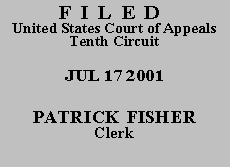

| AHMED ABDELSAMED,
Plaintiff-Appellant, v. UNITED STATES OF AMERICA, Defendant-Appellee. |
|
Petitioner seeks review of the district court's dismissal of his verified complaint and the denial of his motion to file an amended complaint. We have jurisdiction under 28 U.S.C. § 1291, and we affirm.
We review the denial of a Rule 12(b)(6) motion to dismiss de novo, applying the same standard as the district court, and accepting the well-pleaded allegations of the complaint as true and construing them in the light most favorable to the plaintiff. Benefield v. McDowall, 241 F.3d 1267, 1270 (10th Cir. 2001). In this case, the court's dismissal was specifically based on plaintiff's failure to comply with Fed. R. Civ. P. 8(a), which requires a "short and plain statement" of the court's jurisdiction and the claim showing entitlement to relief, and a demand for judgment for the relief sought. Under Rule 12(b)(6), the district court can dismiss a complaint for noncompliance with Rule 8(a)(2)'s short and plain statement requirement if there appears to be no facts on which the plaintiff could state a claim for relief. See Monument Builders of Greater Kan. City, Inc. v. Am. Cemetery Ass'n of Kan., 891 F.2d 1473, 1480 (10th Cir. 1989).
Dismissal of an action without prejudice for failure to comply with Rule 8 is reviewed for abuse of discretion. Kuehl v. FDIC, 8 F.3d 905, 908 (1st Cir. 1993), as is denial of a motion to amend the complaint. Hom v. Squire, 81 F.3d 969, 973 (10th Cir. 1996). Although a pro se litigant's pleadings are entitled to a liberal construction, he must nonetheless follow the rules of federal and appellate procedure. Ogden v. San Juan County, 32 F.3d 452, 455 (10th Cir. 1994). Moreover, the parties and the court are under no obligation to craft legal theories for the plaintiff, nor may they supply factual allegations to support a pro se plaintiff's claim for relief. See Hall v. Bellmon, 935 F.2d 1106, 1110 (10th Cir. 1991).
Here, the district court carefully recited the problems with both the original complaint ("a one hundred fifty-one page prolix of vague allegations and conclusory statements," R. Doc. 22 at 7) and the proffered proposed amended complaint (reduced to seventy-six pages but with almost twice the number of claims as in the original, many of which the court found nonsensical, id. at 9.). We have read these documents and agree with the district court's analysis that they totally fail to "give the defendant fair notice of what the plaintiff's claim is and the grounds upon which it rests," Conley v. Gibson, 355 U.S. 41, 47 (1957). Even liberally construed, both the original and amended complaint in this case are incomprehensible. See Carpenter v. Williams, 86 F.3d 1015, 1016 (10th Cir. 1996). It is not the role of either the court or the defendant to sort through a lengthy, conclusory, and poorly drafted complaint in order to construct a cause of action. See Glenn v. First Nat'l Bank in Grand Junction, 868 F.2d 368, 371-72 (10th Cir. 1989).
Accordingly, and for substantially the reasons stated by the district court in its order of December 5, 2000, we hold that the district court did not abuse its discretion in dismissing the complaint without prejudice and in denying the motion to amend because the proposed amendment did not cure the deficiencies in the original. See Bauchman ex rel. Bauchman v. W. High Sch., 132 F.3d 542, 559 (10th Cir. 1997).
Finally, we note that plaintiff is no stranger to admonishments about his apparent inability to comply with the requirements of Rule 8(a). In affirming the dismissal of an earlier action of plaintiff's, we noted that "[i]ndeed, it would be manifestly unfair to expect [d]efendants to respond reasonably to [p]laintiff's colossal, often incomprehensible, complaint." Abdelsamed v. Colorado, No. 00-1470, 2001 WL 289978, at *1 (10th Cir. Mar. 26, 2001) (unpublished decision cited as part of litigant's court history).
The judgment of the United States District Court for the District of Colorado is AFFIRMED. The mandate shall issue forthwith.
Entered for the Court
Circuit Judge
*. This order and judgment is not binding precedent, except under the doctrines of law of the case, res judicata, and collateral estoppel. The court generally disfavors the citation of orders and judgments; nevertheless, an order and judgment may be cited under the terms and conditions of 10th Cir. R. 36.3.